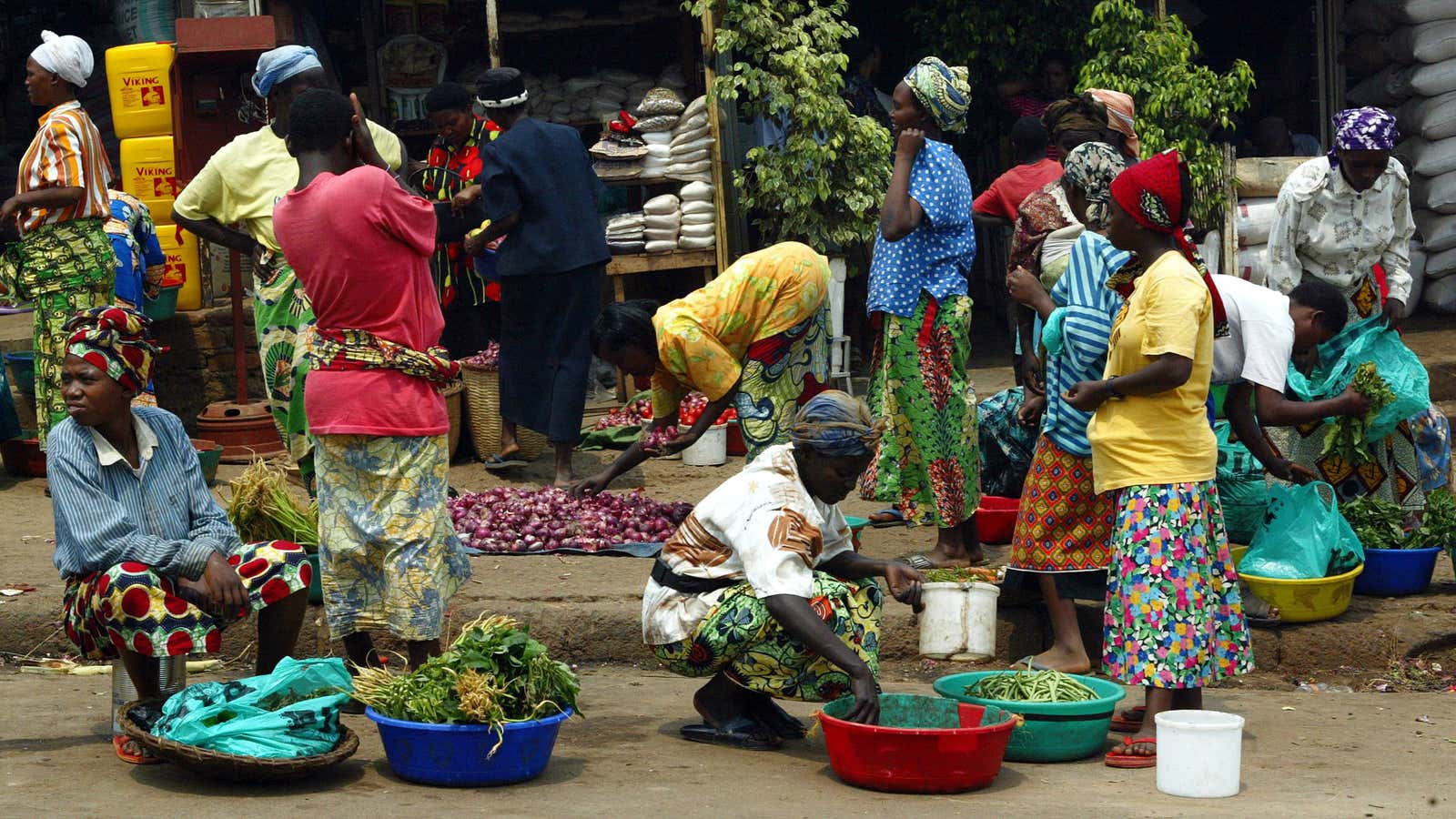Rwanda has refuted allegations it manipulated national statistics to make it seem the country’s poverty rate is being reduced when in fact poverty is on the rise as claimed in a news story from France 24.
The data in dispute was released in a recent Integrated Household Living Conditions Survey (EICV4) report which indicated over 600,000 people had been lifted out of poverty, moving poverty levels down to 39.1% from 44.9% in the last three years
At the core of the dispute is the claim Rwanda changed its definition of poverty based on the amount of calorie intake by the average citizen. Currently the threshold is at 2,500 calories. The France 24 report said the Rwandan government tried to lower that threshold.
A statement released by the country’s institute of statistics says Rwanda could have lowered the calorie threshold to align with the levels used by countries in the same bracket, but actually chose to maintain a higher baseline.
Dr Filip Reyntjens, a professor of African Law and Politics at the University of Antwerp who’s often cited as a Rwanda expert, told France 24 Rwanda greatly reduced the threshold quantities of three traditional staples of sweet potato, Irish potato and banana by 70% or more.
But the government said it had merely updated the composition of the statistical food basket.
“An update to the composition of the statistical food basket used to measure poverty was long overdue. There have been enormous structural changes to production and consumption patterns in the past fifteen years”.
The stellar development strides the country has recorded since the 1994 genocide are well documented and the government is keen not to have a shadow of doubt cast over what has been achieved to date. The International Monetary Fund this week raised its raised Rwanda’s 2015 economic growth forecast to 7% from 6.5%, citing the resilience of the Rwandan Franc against a globally strong dollar.
Rwanda’s minister of finance and economic Planning, Amb Claver Gatete, in a press conference in Kigali, was quick to quash the claims, identifying Dr Reynjtjens as a source with a history of antagonizing Rwanda.
However, the France 24 report says these claims started with a private agency, Oxford Policy Management (OPM), that works with Rwanda in areas regarding statistics on the country’s socio-economic situation.
The source says that this time there was a disagreement between OPM and Rwanda over the methodology used, which could have led the UK-based firm to be sidelined in the last part of EICV4.
Gatete said OPM is just one of the agencies government works with through the institute of statistics, and has a prerogative of working with others when there is need.
“If a consultant can’t do a certain piece of work, you hire another one, if they are also not available you can get another one, it’s not that they are the only ones to do the entire work” said Gatete
Rwanda’s strong stance on corruption has made it a darling of the West, which has resulted into the country enjoying a steady flow of foreign aid.
Analysts say allegations Rwanda has been fabricating development data, not only challenges the government’s reputation, but also threatens foreign aid flow, especially if these claims are found to be legitimate.
This comes at a time when the country is on the verge of changing its constitution to allow president Paul Kagame to continue his rule, reducing poverty being one of the factors fueling his domestic and international support.
